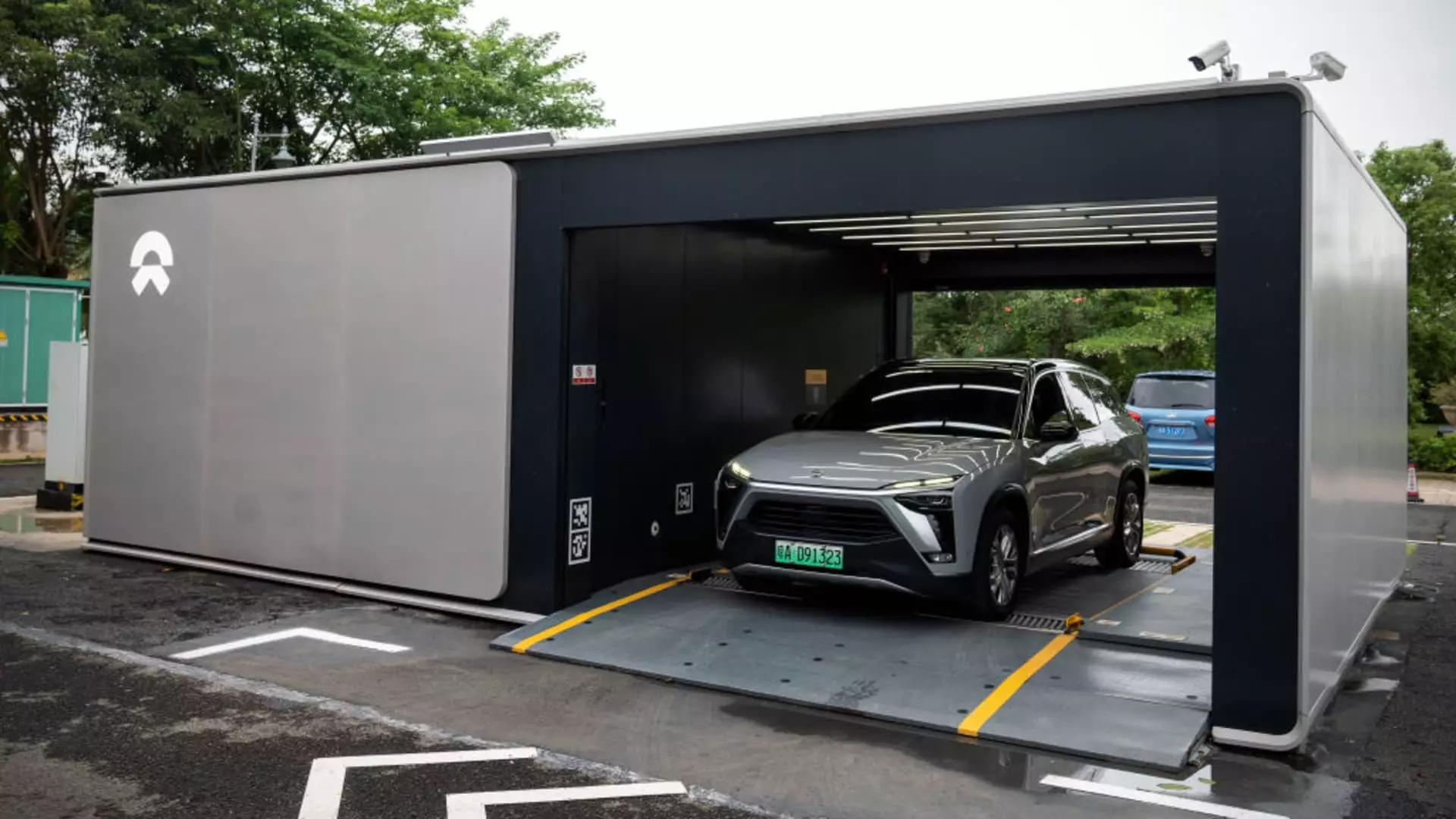Over the past few months, Chinese electric car company Nio has been strategically expanding its battery swap partnerships with various automakers in China. In an attempt to gain an edge on the infrastructure side of the EV ecosystem, Nio has collaborated with Changan, Geely, Chery, and JAC to develop battery swap standards and enhance the network in the region. These efforts are geared towards addressing consumers’ concerns about driving range anxiety and promoting the adoption of electric vehicles.
While traditional charging stations play a crucial role in alleviating consumers’ range anxiety, battery swapping offers a faster and more efficient method to address this issue. Nio’s battery swap technology enables drivers to exchange depleted batteries for pre-charged ones within a few minutes, significantly reducing the charging time compared to traditional methods. Moreover, Nio has completed millions of successful battery swaps, highlighting the reliability and convenience of this approach.
Nio’s focus on battery swapping is not only aimed at serving its existing users but also at enhancing the overall user experience and driving sales growth. By providing a seamless and convenient charging option, Nio aims to make the process of refueling more convenient for consumers, ultimately translating into increased car sales. The company’s commitment to continuously improving its battery swapping network further demonstrates its dedication to customer satisfaction and technological advancement.
Challenges and Opportunities in the Market
While battery swapping presents a promising solution to range anxiety, there are challenges that need to be addressed for widespread adoption. Standardizing car batteries and establishing a robust infrastructure for battery swapping are essential steps towards making this technology mainstream. Additionally, the high upfront costs associated with building battery swap stations may deter some businesses from investing in this technology, despite its potential benefits.
The success of battery swapping hinges on collaboration among key industry players and regulatory support. Nio’s proactive approach in partnering with other automakers and battery companies signifies a collective effort to drive innovation and sustainability in the EV market. The company’s expansion plans in both mainland China and Europe demonstrate its commitment to staying ahead of market demand and advancing its battery swapping technology to new heights.
As the electric vehicle market continues to grow, there is a pressing need to address the issue of battery waste and recycling. Nio’s partnership with Contemporary Amperex Technology (CATL) to develop longer-lasting batteries underscores the company’s commitment to sustainability and environmental responsibility. By leveraging battery swapping and big data analytics, Nio aims to prolong the lifespan of batteries and minimize waste, ensuring a more sustainable future for the EV industry.
Overall, the trend of battery swapping in the EV industry represents a significant step towards enhancing the user experience, accelerating the adoption of electric vehicles, and reducing carbon emissions. Through strategic partnerships, technological innovation, and a strong focus on sustainability, companies like Nio are paving the way for a cleaner and more efficient transportation ecosystem.

